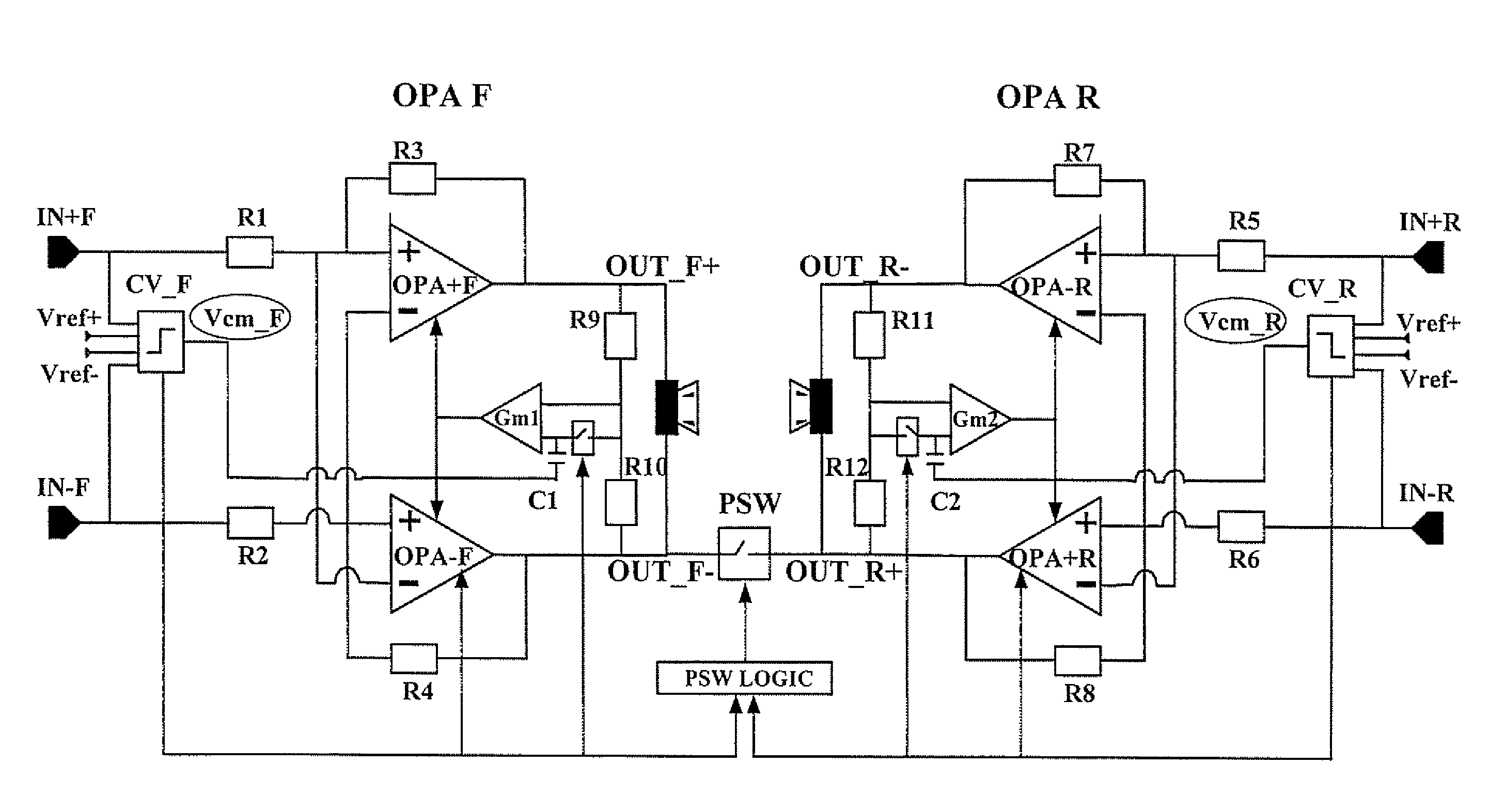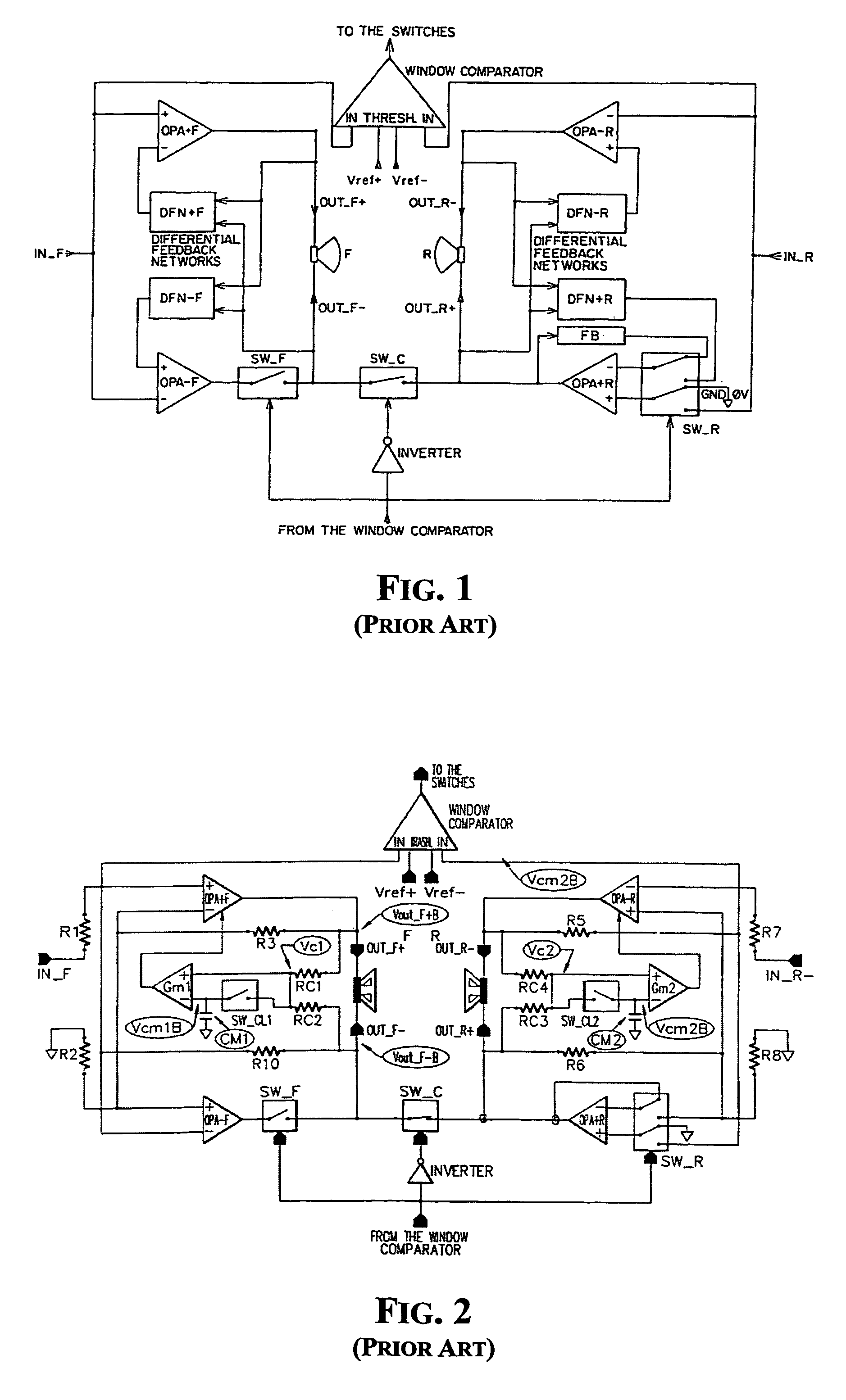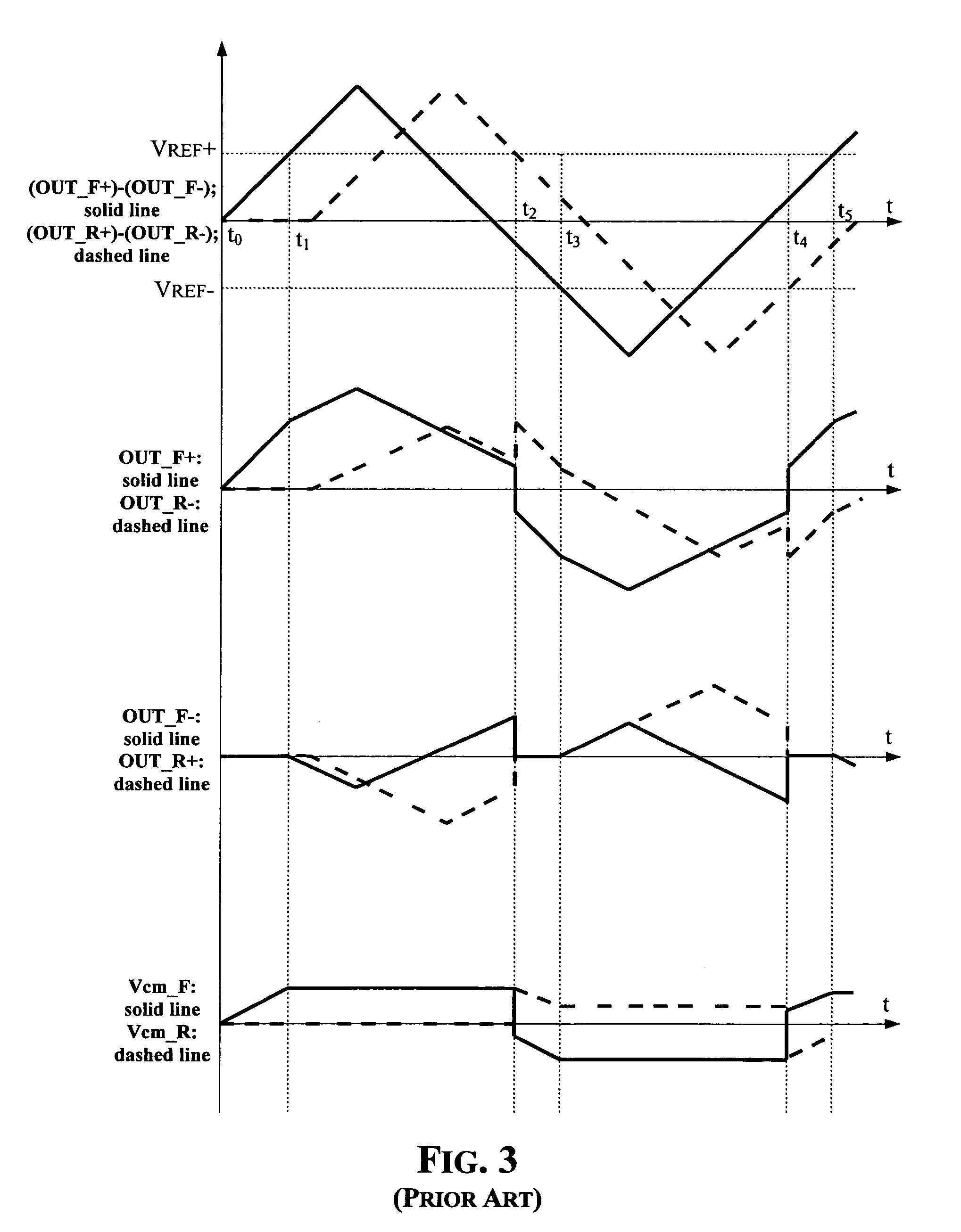Method of preventing abrupt voltage changes at the outputs of a pair of amplifiers and control circuit for a pair of amplifiers self-configuring in a bridge configuration
a technology of amplifiers and control circuits, applied in the direction of amplifiers, push-pull amplifiers, phase splitters, etc., can solve the problems of difficult dissipation of relatively large power, high operating temperatures, and difficult heat balance, and achieve the effect of preventing abrupt voltage changes
- Summary
- Abstract
- Description
- Claims
- Application Information
AI Technical Summary
Benefits of technology
Problems solved by technology
Method used
Image
Examples
Embodiment Construction
[0030]A detailed diagram of a bridge amplifier including a common mode control circuit formed in accordance with the invention is depicted in FIG. 4. R1 . . . R12 are resistors and the block PSW_LOGIC contains the logic circuitry that controls the power switch PSW.
[0031]The general architecture of this bridge amplifier is similar to that of the prior art amplifier of FIG. 2, but the storage capacitors C1 and C2 are not referenced to a ground potential as in the prior art circuit. On the contrary, the storage capacitors C1 and C2 are referenced to voltages VCM_F and VCM_R, respectively, which are a saturated replica of the respective input signal.
[0032]In the example, these voltages VCM_F and VCM_R are purposely generated by the differential / single-ended converters CV_F and CV_R, respectively, and range within the same voltage levels VREF+ and VREF− that define the comparison window of the input differential signals within which the amplifier is in a single-ended configuration. When ...
PUM
 Login to View More
Login to View More Abstract
Description
Claims
Application Information
 Login to View More
Login to View More - R&D
- Intellectual Property
- Life Sciences
- Materials
- Tech Scout
- Unparalleled Data Quality
- Higher Quality Content
- 60% Fewer Hallucinations
Browse by: Latest US Patents, China's latest patents, Technical Efficacy Thesaurus, Application Domain, Technology Topic, Popular Technical Reports.
© 2025 PatSnap. All rights reserved.Legal|Privacy policy|Modern Slavery Act Transparency Statement|Sitemap|About US| Contact US: help@patsnap.com



